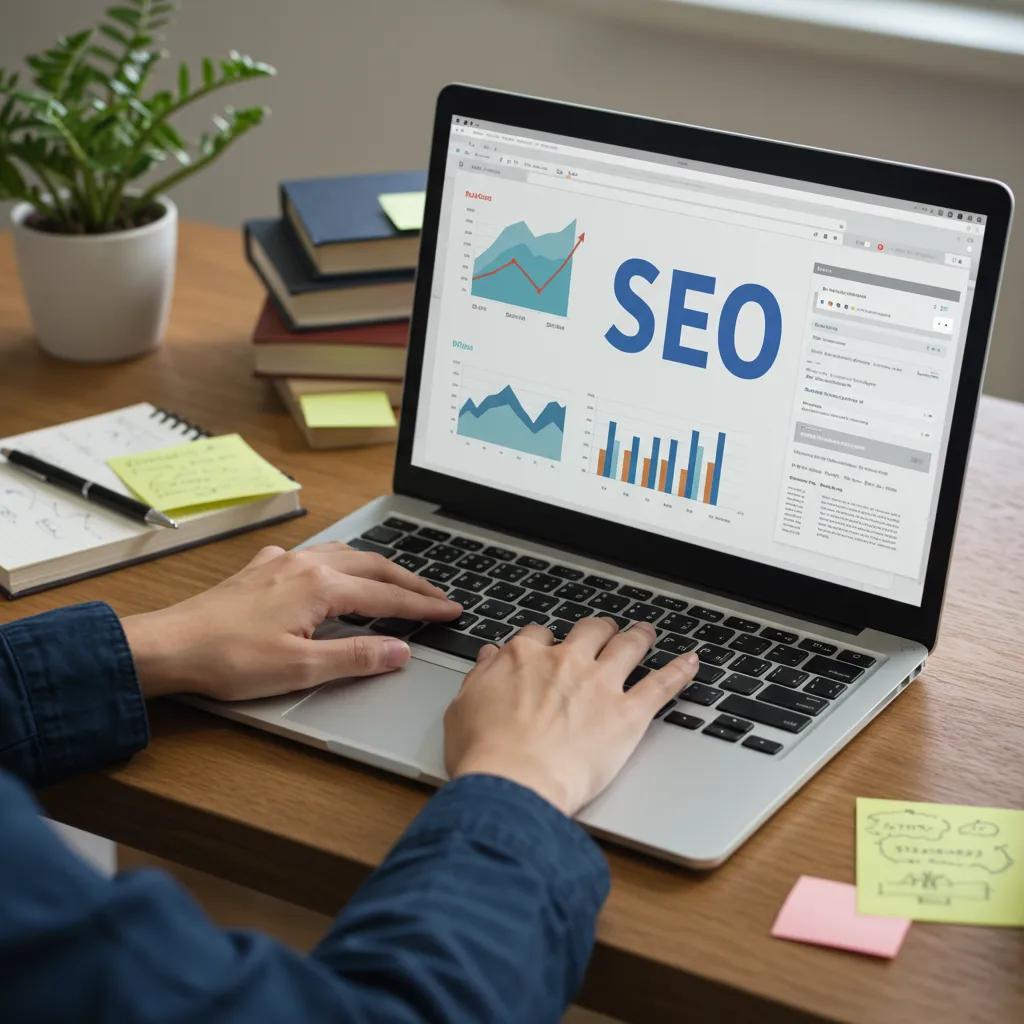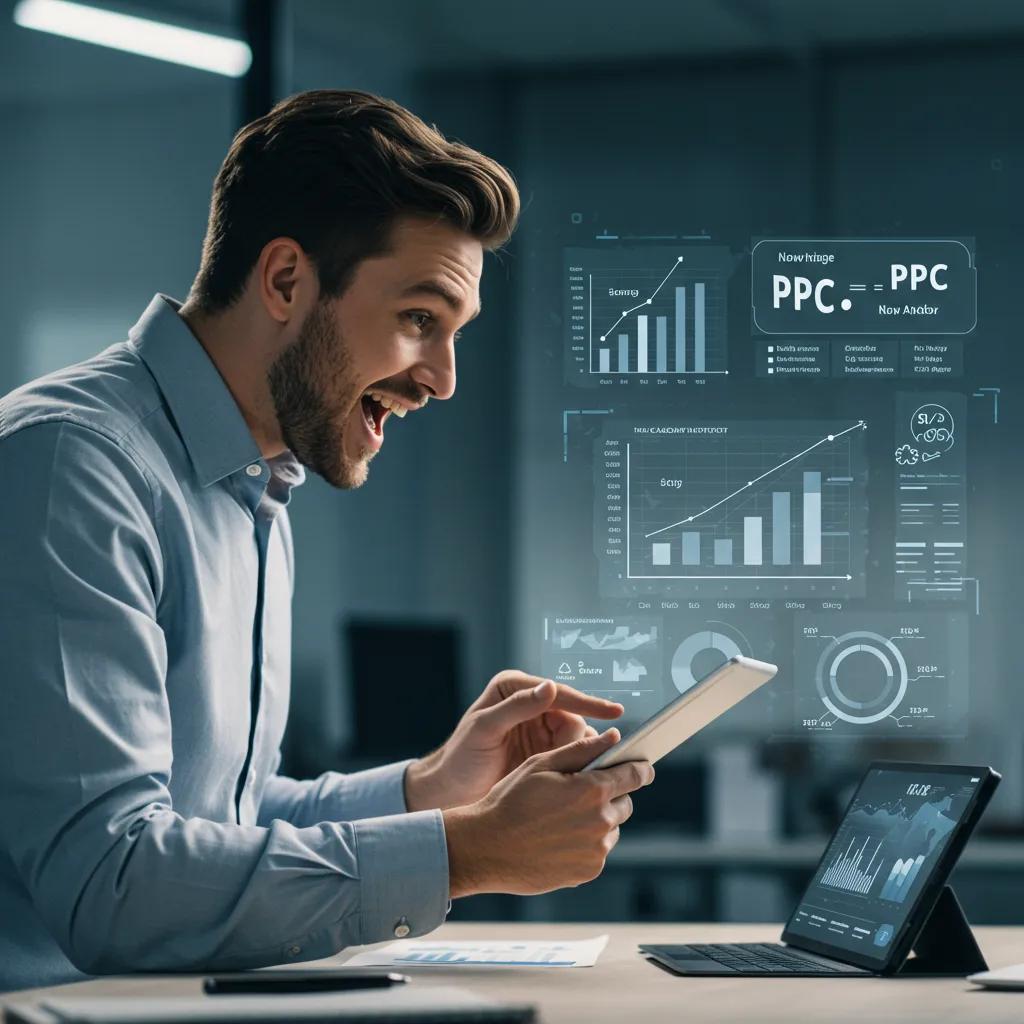Small Business Online Advertising: Drive Local Growth with Smart Digital Strategies
Businesses that leverage targeted digital ads often see returns of up to 400% within six months. This proves that online advertising for businesses isn’t just an option—it’s a necessity. This guide breaks down key tactics like SEO, PPC management, paid social campaigns, social media engagement, and web design optimization. We’ll explain how each works and how to track your success. You’ll get practical advice on budgeting, measurable benefits, and how our agency’s free assessments can create a custom growth plan for you. By exploring proven strategies and future trends, you’ll be ready to expand your local reach.
What is Online Advertising and Why is it Crucial for Businesses?
Online advertising involves placing targeted promotional content across search engines, social platforms, and display networks. It reaches consumers based on their location, interests, and behavior, generating measurable brand awareness and qualified leads for businesses. This direct access to a local audience leads to quicker conversions and data-driven budget decisions.
Here’s a look at the channels driving local growth:
- Search Engine Ads: Display ads to people actively searching for products or services locally.
- Social Media Ads: Utilize demographic and interest targeting on platforms like Facebook and Instagram.
- Display Advertising: Place visual banners on relevant local websites to increase brand recognition.
Together, these channels create a strong online presence, setting the stage for a deeper impact on local businesses.
How Online Advertising Fuels Local Business Growth
Online advertising drives local growth by precisely reaching local residents at every stage of their buying journey, from initial awareness to final purchase. Geo-targeting focuses your reach on specific ZIP codes, maximizing your ad spend efficiency, while advanced analytics track clicks and conversions in real time. Remarketing campaigns ensure repeat exposure to website visitors, recapturing potential customers who browsed but didn’t convert. This cycle of targeted outreach and data feedback allows for continuous improvement, driving sustained business expansion through smart ad placements.
Key Advantages of Digital Marketing for Small Businesses
Digital marketing offers small businesses cost-effective ways to segment audiences, access real-time performance data, and scale campaigns. By monitoring impressions, click-through rates, and conversions, businesses can shift budgets to high-performing ads and pause underperformers instantly. Predictive analytics can anticipate seasonal demand, ensuring ad spend aligns with peak local interest. This transparency in spending and ROI reporting empowers small business owners to invest in growth, staying competitive in a fast-paced local market.
Research shows that digital marketing significantly boosts customer engagement, sales, and brand development for local businesses.
The Influence of Digital Marketing on Local Businesses: Customer Engagement, Sales, and Brand Development
Purpose: This research examines the impact of digital marketing on local businesses, specifically its contribution to improving customer engagement, sales performance, and brand development. The study seeks to address the obstacles encountered by local businesses in adopting digital marketing tools and strategies to attain sustainable growth and a competitive edge in a digital-centric landscape.
Research Design and Methodology: A qualitative literature review approach was employed, integrating systematic thematic analysis and meta-synthesis of extant academic studies. Pertinent literature was sourced from databases including Google Scholar, JSTOR, ScienceDirect, and ProQuest. The analysis prioritizes critical digital marketing components such as social media marketing, email marketing, and search engine optimization (SEO), with a particular focus on their effects on local enterprises.
Findings and Discussion: Digital marketing substantially enhances customer engagement by fostering interaction and satisfaction through social m
What Online Advertising Services Are Available for Businesses?
Businesses can access a range of services from specialized agencies and consultants:
- Pay-Per-Click Management: Optimizes bids and keywords for search engine campaigns.
- Paid Social Strategies: Creates audience segments and ad creatives for platforms like Facebook and LinkedIn.
- Display Network Solutions: Designs and places visual ads on local and interest-based websites.
Each service type offers distinct targeting capabilities and pricing structures, leading us to explore specialized SEO tactics next.
How Can SEO Services Boost Your Online Visibility for Businesses?
SEO services enhance visibility by optimizing your website’s structure, content, and technical performance to rank higher in local search results. This drives organic traffic and generates leads sustainably. Local SEO focuses on “near me†searches, while technical and e-commerce SEO ensure your site architecture supports fast loading and secure transactions. Together, these strategies build authority and deliver consistent, cost-effective visibility that complements paid advertising efforts.
What is Local SEO and How Does It Benefit Businesses?
Local SEO focuses on optimizing for geographically specific searches, such as “digital marketing near me.†It involves improving on-page citations, Google Business Profile accuracy, and localized content. This strategy boosts your presence in local search results and map listings, driving qualified foot traffic and calls from potential customers. Regularly reviewing location pages and customer feedback builds credibility, directly increasing click-through rates and store visits.
Implementing a successful marketing strategy that includes Search Engine Optimization (SEO) is vital for businesses to improve their visibility and enhance communication with online customers.
Business Optimization in the Digital Era: Search Engine Optimization for Local Visibility and Organic Traffic
Introduction. Digital transformation and the intense level of both offline and online competition significantly impact businesses, underscoring the relevance and necessity of implementing a successful, pertinent marketing strategy that incorporates Search Engine Optimization (SEO). SEO enhances business visibility on the internet compared to priority competitors, fostering improved communication and interaction aligned with the diverse demands of online buyers (customers, clients). SEO is particularly crucial for the success of retail businesses, which are characterized by constant short-term and long-term strategic decisions. The objective of the presented research is to substantiate the importance of local search engine optimization for retail businesses to increase organic traffic; to provide insights and practical recommendations for retailers concerning the local optimization of their businesses within Google as an integral component of an effective marketing strategy; and to develop typical, valid data micro-markup (using the example of a Ukrainian retailer) that will contribute to advantageous placement in the Local Pack relative to competitors, thereby increasing organic traffic and conversion rates.
How Do Technical and E-commerce SEO Services Support Businesses?
Technical SEO audits and e-commerce optimizations ensure that site speed, mobile-friendliness, and secure checkout processes meet search engine standards, reducing bounce rates and increasing conversion opportunities. Structured data markup on product pages improves search visibility, while canonical tags prevent duplicate content penalties. These improvements build user trust and enable faster page indexing, which in turn supports broader digital campaigns.
What Are Proven SEO Strategies for Businesses in 2025?
Proven SEO strategies for 2025 include using AI for content analysis and topic clustering, optimizing for voice search queries common in local searches, and implementing dynamic schema markup for events and promotions. Investing in short-form video content on service pages increases dwell time, while mobile-first indexing compliance ensures top placement in local searches. These tactics integrate with paid channels to create a unified search and advertising ecosystem.
What Are the Benefits of PPC Advertising for Businesses?
PPC advertising provides immediate visibility by placing your ads at the top of search results for specific keywords, driving instant traffic and measurable ROI. Advertisers have full control over budgets, down to the keyword and geographic level, ensuring every dollar spent aligns with local intent. When continuously optimized, PPC campaigns generate high-quality leads and build brand recognition in competitive local markets.
How Does Google Ads Management Work for Clients?
Google Ads management involves keyword research tailored to local search trends, ad copy that resonates with local audiences, and bid adjustments based on real-time performance data. Campaigns segment audiences by device, time of day, and location, allowing for precise budget allocation. Ongoing A/B testing of headlines and ad extensions refines click-through rates and conversion values, leading to cost-effective customer acquisition.
This table illustrates how different Google Ads campaigns serve specific objectives, leading us to explore paid social media options next.
What Are the Advantages of Paid Social Media Ads for Businesses?
Paid social ads on platforms like Facebook, Instagram, and LinkedIn allow businesses to target audiences based on demographics, interests, and behaviors. Advanced targeting reaches users who have interacted with local groups or pages, while lookalike audiences expand your reach to similar potential customers. Engaging formats like carousel and video ads increase interaction rates and encourage social sharing, amplifying brand reach organically after initial paid exposure.
How Do Retargeting Campaigns Increase Conversions for Local Businesses?
Retargeting campaigns re-engage visitors who left your site without completing a purchase by showing them ads across search and social channels based on their past activity. This repeated exposure builds brand recall and encourages return visits, leading to higher conversion rates. Frequency capping ensures ads are shown appropriately without becoming intrusive, and sequential messaging guides prospects from awareness to purchase with tailored offers or testimonials.
How Does Social Media Marketing Boost Brand Awareness for Businesses?
Social media marketing builds brand awareness by connecting with local audiences through organic posts, targeted ads, and interactive content that reflects local culture and events. Consistent posting and community engagement foster trust and loyalty, while analytics help determine the best times and formats for posts. By incorporating local stories into your social media presence, you create an authentic connection that paid ads can then amplify.
What Social Media Strategies Work Best for Restaurants and Retailers?
Restaurants and retailers benefit greatly from location-based hashtags, user-generated content campaigns, and event promotions tied to local festivals or seasonal events. Encouraging customers to share photos with branded filters during events generates free visibility, while timed specials promoted via Instagram Stories can drive traffic on slower days. This combination of organic storytelling and targeted ads maximizes local engagement.
How Is Influencer Marketing Used by Businesses?
Influencer marketing utilizes trusted local voices—like food bloggers or lifestyle personalities—to introduce your offerings to their followers. Structured campaigns clearly define deliverables, timelines, and performance goals, ensuring transparency and measurable results. Micro-influencers with highly engaged local audiences often achieve better engagement rates and provide authentic endorsements that lead to impulse purchases and social proof.
What Role Does Content Creation Play in Social Media Success?
High-quality content, including short-form videos, behind-the-scenes glimpses, and informative infographics, drives engagement and shares, extending your reach beyond paid audiences. Developing a content calendar that aligns with local events and trending topics ensures relevance, while user polls and live streams encourage two-way interaction. This consistent flow of content supports both organic growth and the performance of paid campaigns.
What Web Design and Website Optimization Services Are Available for Businesses?
Web design and optimization services range from custom WordPress builds to full e-commerce development, all aimed at improving user experience, brand perception, and SEO performance. Responsive layouts, intuitive navigation, and fast load times reduce bounce rates, while optimized site structure helps search engines index key service pages effectively.
How Does WordPress Web Design Benefit Small Businesses?
WordPress web design offers small businesses an affordable and flexible platform with a vast ecosystem of plugins for SEO, social media integration, and security. Custom themes tailored to your brand identity speed up your time to market, while built-in blogging features support content marketing efforts that boost organic search visibility.
What Are the Key Elements of E-commerce Web Development for Businesses?
E-commerce web development focuses on secure payment gateways, streamlined checkout processes, and product organization that improves discoverability. Mobile optimization and one-click ordering reduce friction, while inventory management integrations ensure accurate stock levels. These features work together to increase sales conversions and customer satisfaction.
How Does Website Optimization Improve User Experience and SEO?
Website optimization includes improving page speed, enhancing mobile usability, and implementing structured data, all of which help search engines index your site and improve rankings. Optimized images and minified code reduce loading times, while clear calls to action guide visitors toward desired actions, strengthening conversion paths and boosting engagement metrics.
How Can Business Consulting Services Enhance Your Online Advertising Results?
Business consulting services improve advertising outcomes by aligning marketing strategies with overall business planning, financial management, and operational efficiency. Consultants analyze market data, forecast budgets, and streamline workflows to ensure ad spend translates into profit. This comprehensive approach integrates business objectives with digital campaigns for sustained growth.
What Strategic Planning Services Support Digital Marketing Success?
Strategic planning services establish clear marketing goals, target audience segments, and performance benchmarks to guide campaign development. By mapping customer journeys and allocating resources across different channels, consultants ensure that each tactic—whether SEO, PPC, or social media—contributes to overarching business objectives and measurable KPIs.
How Does Financial Advisory Help Local Businesses Maximize Advertising Budgets?
Financial advisory services analyze cost structures and return on investment across various advertising channels, recommending budget allocations that optimize cost per acquisition. Scenario modeling forecasts potential outcomes under different spending levels, enabling businesses to scale campaigns confidently and avoid overspending on less effective ads.
What Operational Efficiency Improvements Support Marketing Growth?
Operational efficiency consulting streamlines internal processes, such as lead management, reporting, and content approvals, to minimize delays and miscommunication. Automated workflows and clearly defined roles accelerate campaign launches, allowing for rapid testing and iteration that keeps your digital strategy agile and responsive to market changes.
What Are the Costs and ROI of Hiring an Online Advertising Agency?
Hiring an agency typically involves monthly retainers or project-based fees covering strategy, execution, and reporting. ROI is measured through metrics like cost-per-lead and revenue growth. Agencies leverage economies of scale in ad spend management and proprietary tools to deliver efficient results that often outperform in-house efforts.
How Affordable Is Digital Marketing Compared to Traditional Advertising?
Digital marketing offers transparent spending and real-time performance data, unlike traditional methods that require broad-reach buys with limited tracking. Pay-per-click budgets can start at modest levels, allowing small businesses to test campaigns and scale based on proven ROI, often achieving a lower cost per customer acquisition than print or radio advertising.
What Factors Influence Pricing for SEO, PPC, and Social Media Services?
Pricing depends on campaign complexity, keyword competition, and the desired advertising platforms. High-volume search terms and niche audience segments may result in higher management fees, while bundled service packages—combining SEO, PPC, and social media—often provide cost savings through integrated strategies and shared reporting.
How Do Free Assessments and Consultations Help Choose the Right Agency?
Free assessments and consultations help identify your business goals, current digital performance, and budget limitations, allowing agencies to recommend suitable service packages. This diagnostic process clarifies expected outcomes and timelines, ensuring alignment before any financial commitment and maximizing the potential for campaign success.
How Do Businesses Measure Success in Online Advertising?
Success in online advertising is measured through key performance indicators like click-through rate, conversion rate, and cost-per-acquisition, which directly link ad spend to business results. Monitoring local search rankings and organic traffic complements paid metrics, providing a comprehensive view of digital performance.
What Key Performance Indicators (KPIs) Track Digital Marketing Effectiveness?
Primary KPIs include cost-per-click, click-through rate, and conversion rate for paid campaigns, along with organic impressions, search position, and visitor engagement for SEO. Tracking revenue per visitor and return on ad spend connects digital efforts to the bottom line, guiding ongoing optimization.
How Are Case Studies Demonstrating Local Business Growth Through Advertising?
Case studies highlight specific clients, the challenges they faced, the strategies implemented (such as geo-targeted PPC or local SEO improvements), and the measurable results—like a 60% increase in qualified leads or a 3x boost in e-commerce sales—demonstrating campaign effectiveness in local contexts.
What Tools Help Monitor SEO, PPC, and Social Media Campaigns?
Analytics platforms track user behavior and goal completions, while search console tools monitor website indexing and keyword performance. PPC dashboards offer insights into bids and budgets, and social media analytics reveal engagement metrics. Together, these tools enable data-driven adjustments that maintain high ROI.
What Are the Top Digital Marketing Trends for Businesses in 2025?
In 2025, businesses will leverage AI-powered content creation, short-form video marketing, social commerce integration, and interactive AR experiences to engage local audiences. These trends combine to create immersive, personalized campaigns that stand out and foster deeper brand connections.
How Is AI Enhancing SEO and Online Advertising Strategies Locally?
AI analyzes extensive local search data to identify high-impact keywords, generate optimized ad copy, and predict audience responses. Machine-learning algorithms automate bid adjustments and budget shifts in real time, improving click-through rates and lowering cost-per-acquisition without manual input.
Why Are Short-Form Videos and Social Commerce Critical for Local Businesses?
Short-form videos capture attention in busy social feeds and can be directly shoppable through integrated commerce features, shortening the path from discovery to purchase. Local businesses can showcase products or services in context—like a tour of a local area highlighting businesses—driving in-person visits and mobile conversions.
How Can Augmented Reality and Interactive Content Engage Local Audiences?
Augmented reality filters and interactive quizzes immerse users in your brand story by overlaying digital elements onto real-world views, such as previewing furniture in a customer’s home or virtually sampling menu items. This personalization builds emotional connections and encourages social sharing, expanding reach through user participation.
Our agency’s free assessment and consultation process can evaluate your current digital presence, suggest priority improvements, and project potential ROI based on local benchmarks. Request a consultation to align your online advertising strategy with proven tactics and emerging trends.



